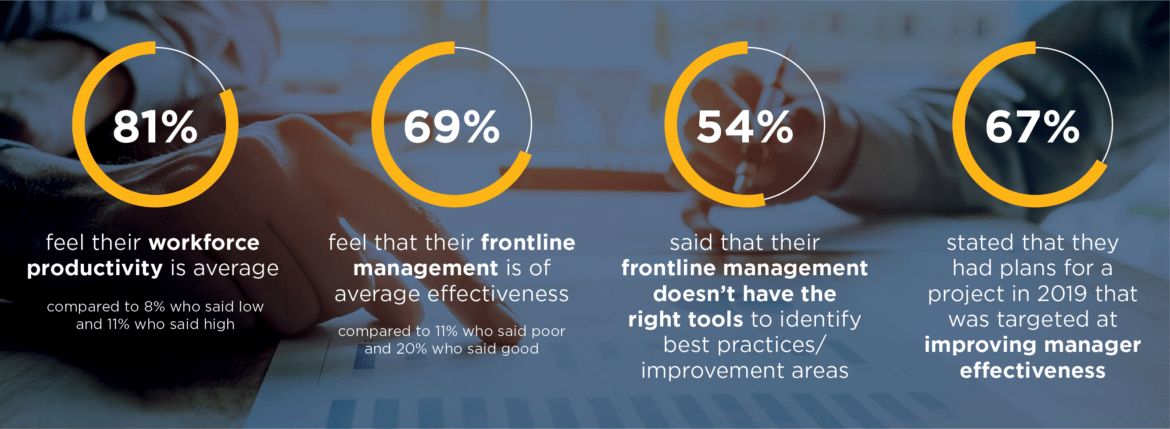
May 7, 2019 | InBrief
Upskilling managers is imperative to drive workforce productivity
Upskilling managers is imperative to drive workforce productivity
I recently returned from the annual WERC (Warehousing Education and Research Council) conference in Columbus, Ohio. During the sessions I attended, the various networking events, as well as the session I presented with Ethan DeWall from Martin Bros. Distributing Co., a reoccurring theme appeared: the struggle to attract and retain talent is a continuing challenge that organizations face across all parts of their warehousing and logistics networks.
During my session with Ethan, we discussed our partnership to revitalize Martin Bros.’ existing workforce management program. The goal was to refresh, refine, and enhance the tools, knowledge, and processes frontline management leveraged to drive improved operational results. We also polled participants to gauge the maturity of their workforce and frontline management teams. The results below were in line with other studies completed by both West Monroe and industry experts focused on manager effectiveness and employee engagement:
Data is important, but not singularly so
What I thought was interesting in all of this is that many of the conversations I heard throughout the conference focused on using data to improve productivity (e.g., dashboards and other KPI reporting). While data is critical to all operations, what is often overlooked in the solutioning process is the training, tools, and soft skills that frontline management needs in order to be proactive and to develop their teams. In other words, what training or tools are required for managers to leverage data and enable changed behaviors and drive long term goals?
It may be tempting to dive right into the data in hand, but doing so without properly upskilling your team on how to interpret the insights could have adverse effects. For example, Amazon recently came under fire for implementing software that suggests when managers should fire employees.
While there is likely more to the story, the summary is that Amazon has been accused of using an automated system to track employee productivity and recommend employee terminations based on data trends. Many people are upset by this practice, and rightfully so. However, even without a system that systematically recommends termination, it is commonplace in many operations for frontline management to discipline and terminate employees based on data results alone without ever investigating the root cause or looking for improvement opportunities.
An increase in data is not inherently bad. Rather, it is an enabler and provides insight into a properly trained and equipped manager that can then act appropriately. A management team that is trained, equipped with tools, and adept at soft skills can leverage data as part of a larger proactive cycle to drive operational results. Success in operations stems from coaching relationships and multiple channels of feedback. Ensuring that the right management training, tools, and skill sets are implemented, along with the right data, can dramatically impact the organization’s productivity and engagement. It’s not just about having the right tools but knowing how to properly use them to drive results – and can make the difference between an average operation and an exceptional operation.



